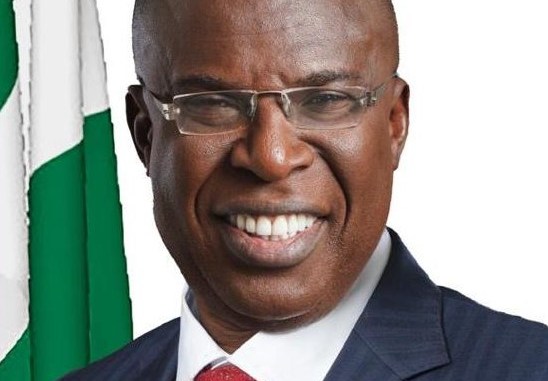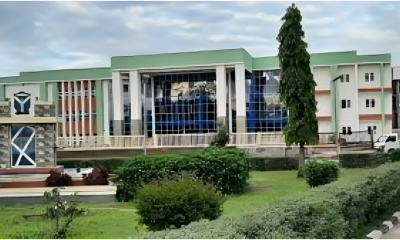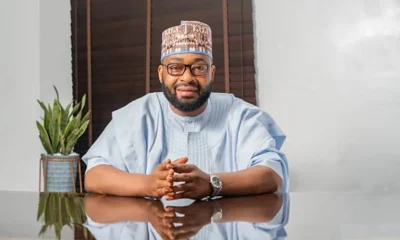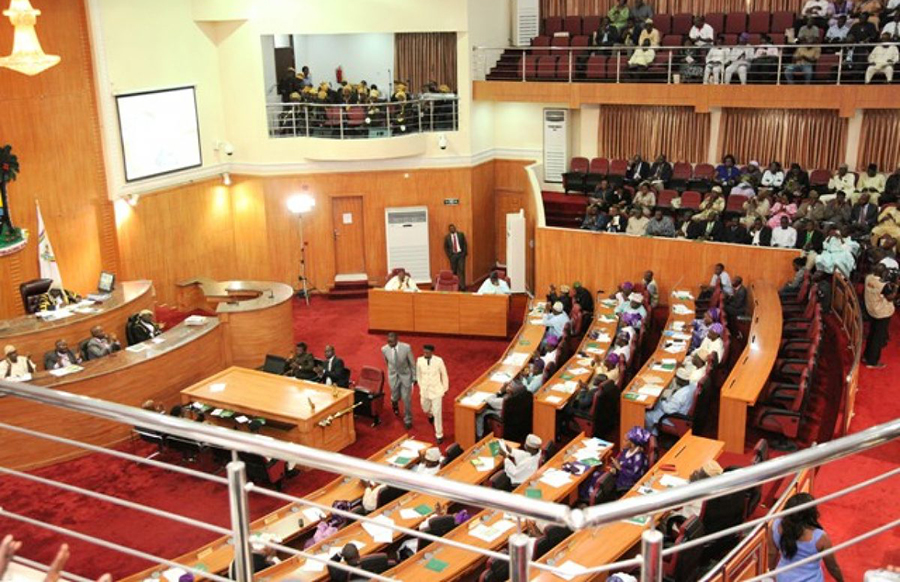Oil & Gas
OPEC, GECF Express Commitment to Ensure Stability of Global Energy Market
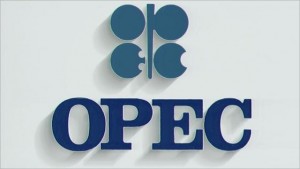
The Gas Exporting Countries Forum (GECF) and Organisation of Petroleum Exporting Countries (OPEC) have expressed commitment to collaborate with member countries to ensure stability to global energy, oil and natural gas markets.
Dr Yuri Sentyurin, Secretary-General, GECF, who made the commitment known on Wednesday while opening the second High-level Virtual Meeting of GECF- OPEC Energy Dialogue said it aimed towards achieving more sustainable world.
The secretary-general noted that efficient collaboration within GECF-OPEC High-Level Energy Dialogue was very essential, due to the current period of concerns as regards to energy crisis and its complications.
Sentyurin stressed that gas remained most practical option to attain energy transition, spur economic growth and social progress anywhere in the world, adding that member countries had been fulfilling all of their long-term supply contracts.
He said GECF thoroughly recognised the complex challenges imposed by climate change and the importance of abating carbon emissions, adding that it supported all endeavours and attempts in dealing with climate change.
Furthermore, he stated that it supported and strived to be part of the efforts undertaken by the international community to deal with environmental issues.
“Therefore, the GECF joined the commitment of UN to ensure that oil and gas sectors continue to make influential contribution to overcoming COVID-19 pandemic impacts, powering the global economic recovery, and accelerating move towards net-zero emissions.
“In GECF, we share the statement by Mohammad Barkindo, OPEC Secretary-General, that oil and gas have an important role to play in the energy transition and support the need to reduce emissions, bolster efficiency and embrace innovation.
“Therefore we must be aware of the risk we run of not adequately investing in the future of oil and gas industries,” he added.
Sentyurin also lauded member countries which had pledged to ensure net-zero carbon emissions by 2060 and also for submitting details of their Nationally Determined Contributions required by upcoming COP26 Meeting, while maintaining their roles as leading producers of oil and gas.
According to the secretary-general, the GECF member countries have placed climate action at the forefront of their priorities by focusing on exploring all possible options – from technology and innovation to research and development.
This, he said would cement the role of natural gas and oil as a solution for a balanced energy transition with adequate investments into oil and gas.
He recalled that the GECF 2019 Malabo Declaration adopted by the GECF Heads of State and Government mandated them to “promote GECF cooperation with African countries to use gas as core source of energy in development programmes and climate change policies.”
This, according to him will help overcome energy poverty, enhance development and to mitigate CO2 emissions.
“According to the latest projections by GECF Global Gas Outlook 2050, natural gas and oil will provide more than 50 per cent of global energy demand by 2050 under the reference case scenario.
“Therefore, a multi-dimension approach should be the way forward to deal with the climate challenge in which the oil and gas industries form the bedrock of the solution.
“I am very proud to inform you that we are not only talking, but acting. The Secretariat of Gas Exporting Countries Forum has started the necessary work on the reduction of greenhouse gas emissions from its activities to net-zero by 2024.
“And we are ready to share our best practices and updates on its progress towards net zero emissions with our colleagues in OPEC and other intergovernmental organisations.
“GECF and OPEC, as the two largest oil and gas coalitions, should carefully approach decarbonisation, and prevent artificial acceleration of ‘greening’ the international agenda, at the expense of the sustainability of Member countries energy sectors,” he said. (NAN)
Oil & Gas
NNPC Ltd. Disclaims Fake Financial Scheme

The Nigerian National Petroleum Company Limited (NNPC Ltd.) has disowned a fake AI-generated video circulating on social media featuring a cloned voice of the Group CEO, Mr Bayo Ojulari, promoting a fictitious poverty alleviation scheme.
The Chief Corporate Communications Officer, NNPC Ltd.
, Olufemi Soneye in a statement on Thursday clarified that the company had no such investment initiative.Soneye urged the public to disregard the video, originally shared by an account named Mensageiro de Cristo on Facebook.
“NNPC Ltd. has warned the perpetrators to cease their fraudulent actions or face legal consequences,” he said. (NAN)
NEWS
NGEP Urges Gas Reticulation In Buildings

By Olasunkanmi Onifade
Abuja, April 29, 2025 The National Gas Expansion Programme (NGEP) has called on stakeholders to promote the integration of gas reticulation systems in estates, districts, and industrial areas, following best practices seen in developed countries.
Chairman of NGEP, Prof.
Mohammed Ibrahim, made the call on Tuesday during the Builders’ Conference and Annual General Meeting of the Nigerian Institute of Building (NIOB), FCT Chapter, in Abuja.The conference, themed “Gas Reticulation in Building: Design, Safety, Environmental Compliance and Prospects for Builders,” focused on enhancing energy infrastructure in Nigeria’s built environment.
Ibrahim noted that with Nigeria’s vast natural gas reserves, gas reticulation offered a sustainable solution to improve energy accessibility, affordability, and reliability in homes and businesses.
“Gas reticulation in buildings presents a compelling pathway to a more sustainable, efficient, and resilient built environment.
“By prioritising sound design principles and ensuring strict adherence to safety and environmental standards, we can unlock the full potential of natural gas to drive progress,” he said.
He highlighted the key benefits of gas reticulation, including energy efficiency, cost effectiveness, versatility, and reliability.
Also speaking, the Chairman of the Council of Registered Builders of Nigeria, Samson Opaluwah, stressed the importance of capacity building for safe and efficient gas distribution.
He said this involved training engineers, technicians, and other professionals in system design, installation, and maintenance, while also strengthening regulatory frameworks and encouraging local innovation and manufacturing.
The Chairman of NIOB, FCT Chapter, Usman Okehi, emphasised the growing need to incorporate gas systems in residential, commercial, and industrial developments across Nigeria due to rising energy demands and gas availability.
According to him, with this advancement comes the need for strict adherence to design standards, rigorous safety protocols, and full environmental compliance.
“It is our responsibility as professionals and regulators to ensure these systems are functional, safe, and environmentally sound,” Okehi said.
He described the conference as a platform where stakeholders could explore the evolving landscape of gas infrastructure in building projects, share best practices, examine safety and environmental considerations, and assess future opportunities for builders in the sector.
The News Agency of Nigeria (NAN) reports that the Nigerian Institute of Building is the professional body for builders in Nigeria. It traces its origins to the Builders’ Society, established in London in 1834.
Oil & Gas
FG Inaugurates Committee to Enhance Gas Distribution in Urban Buildings

The Ministry of Petroleum Resources has inaugurated a Technical Working Group to enhance gas reticulation practices in Nigeria’s building industry.
The ministry’s Permanent Secretary, Amb. Nicholas Ella inaugurated the Technical Working Group (TWG) between the National Gas Expansion Programme (NGEP) and the Council of Registered Builders of Nigeria (CORBON) on Wednesday.
Reports= says that reticulation refers to the process of creating a network of pipes or tubes to distribute gas or other utilities to buildings or industrial sites.
The permanent secretary restated the importance of creating energy smart cities, saying that modern urban development relies on efficient gas and utility distribution systems,
“Most modern cities in developed countries have evolved to energy smart cities where energy, specifically gas and other utilities are piped to districts and estates.
“However, one of the key tools in creating energy smart city is the National Building
Code which, in essence, sets the guidelines on Building Pre-design, designs, construction and post-construction stages,” he said.
The permanent secretary reiterated the benefits of reticulated gas systems for households and businesses alike, adding that it ensured metered supply akin to water and electricity,
According to him, it eliminates the need for cumbersome refills, and also enhances safety by burying pipes and incorporating advanced safety equipments.
“The TWG is tasked with designing a comprehensive policy to implement best practices for gas reticulation using LPG, PNG, and Bio-Gas across Nigeria’s building sector.
“Key responsibilities include reviewing the current National Building Code, examining global gas distribution systems, and proposing quality standards for materials used in gas installations,” he said.
The permanent secretary emphasised the need for rigorous safety protocols and guidelines to ensure the efficient and safe use of gas in construction.
He urged the group to prioritise environmental sustainability in its recommendations, adding that the group is expected to submit its report by Nov. 15.
Earlier, Mr Samson Opaliwah, the Chairman of CORBON. expressed the council’s commitment to collaborate with the group to ensure safe uptake of gas for use in houses and housing estates in Nigeria.
“I assure you of the williness of CORBON to leverage the expertise and resources at her disposal to ensure that steps are put in place for gas infrastructure in buildings and estates.
“The gas infrastructure will be safe, sustainable and world-class.
” Our collective efforts will yield clear, standardised guidelines for safe and effective gas systems in buildings, matched with a skilled workforce to meet growing demands in Nigeria,” he said. (NAN)





